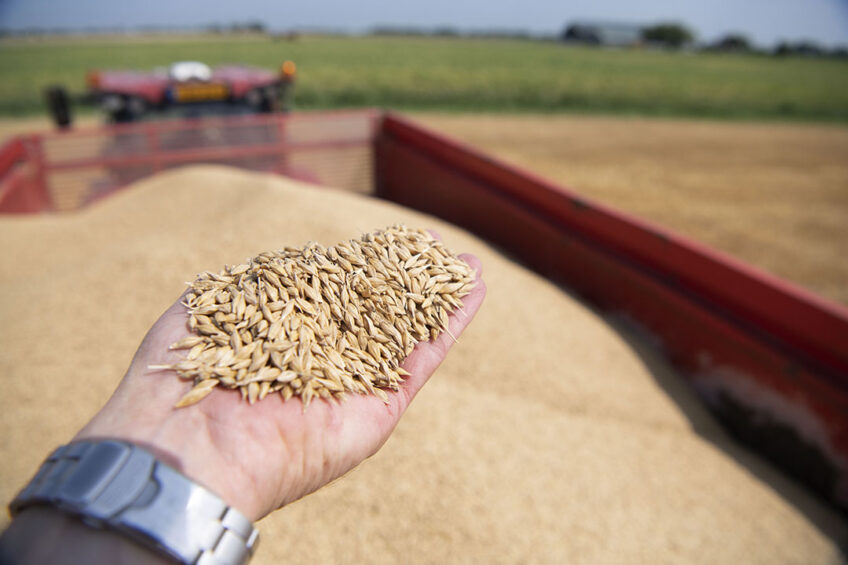World
Russia Ends Ukraine Grain Deal: Impact on European Food Security  By Margaret Z
By Margaret Z
 July 19th, 2023 In a shocking move, Russia has decided to terminate its grain deal with Ukraine, a major supplier of wheat and other cereals to Europe. This decision comes amidst escalating tensions between the two nations and raises significant concerns over the potential consequences on European food security. The termination of the grain deal could have far-reaching effects, not only on European economies but also on the availability and prices of essential food commodities for European consumers. This article delves into the potential ramifications of this development on European food security.
July 19th, 2023 In a shocking move, Russia has decided to terminate its grain deal with Ukraine, a major supplier of wheat and other cereals to Europe. This decision comes amidst escalating tensions between the two nations and raises significant concerns over the potential consequences on European food security. The termination of the grain deal could have far-reaching effects, not only on European economies but also on the availability and prices of essential food commodities for European consumers. This article delves into the potential ramifications of this development on European food security. 
Dependence on Ukrainian Grain: Europe heavily relies on Ukraine as a crucial source of grain imports, with millions of metric tons of wheat, corn, and barley supplied annually. The abrupt termination of this deal means that European countries will lose access to a stable and significant portion of their grain supply, creating a supply-demand imbalance in the European market.
Price Surge: The sudden disruption in grain imports from Ukraine could lead to an immediate surge in grain prices in Europe. With limited alternative sources to fill the void left by Ukraine, demand may outstrip supply, causing a hike in grain prices across the continent. This increase would inevitably impact European consumers and food manufacturers, leading to higher prices for bread, pasta, and other grain-based products.
Vulnerability to Market Manipulation: The termination of the grain deal exposes Europe's vulnerability to market manipulation by major grain exporters. Russia's decision to halt grain exports to Ukraine could be seen as a strategic move to gain leverage in the ongoing geopolitical conflict, potentially leaving European nations at the mercy of political decisions affecting their food security.
Agricultural Sector Impact: European farmers who have grown accustomed to exporting their surplus grain to other markets may face challenges due to the sudden change in the grain trade dynamics. Without Ukraine as a primary destination for their grain exports, European farmers could experience reduced profits and potential economic hardships.
Diversification Efforts: European countries may now be compelled to diversify their sources of grain imports to mitigate the risk of dependence on any single nation. This process could take time and may lead to higher logistics costs and complexities in dealing with multiple suppliers, adding further strain to the already disrupted grain market.
Strategic Grain Reserves: European nations might look to bolster their strategic grain reserves as a precautionary measure against future supply disruptions. Building and maintaining larger reserves, however, incur costs and administrative efforts that governments need to account for within their budgets.
Trade Agreements and Negotiations: The termination of the grain deal may prompt European leaders to engage in urgent negotiations with Russia and Ukraine to resolve the conflict and restore grain trade. This situation may also encourage the European Union to strengthen its trade ties with other grain-producing nations outside the region.
Food Aid and Assistance: Some European nations, particularly those with weaker economies, may face challenges in securing enough food supplies for their citizens. This could lead to increased reliance on food aid and assistance from international organizations, putting additional strain on humanitarian resources.
Food Inflation and Consumer Impact: As grain prices rise, European consumers could experience a surge in food inflation, affecting their purchasing power and household budgets. Lower-income households, in particular, may struggle to afford essential food items, exacerbating economic disparities.
Food Security Policies: The grain deal termination might trigger a reassessment of food security policies in European countries. Policymakers may consider implementing measures to promote domestic agricultural production, enhance food self-sufficiency, and reduce reliance on foreign imports.
In conclusion, the termination of the Ukraine-Russia grain deal has the potential to significantly impact European food security. From higher grain prices and market vulnerability to potential shifts in agricultural policies, the consequences of this development underscore the importance of stable and diversified food supply chains to safeguard the well-being of European citizens.
Facebook
WhatsApp

 By Margaret Z
By Margaret Z  July 19th, 2023
July 19th, 2023 